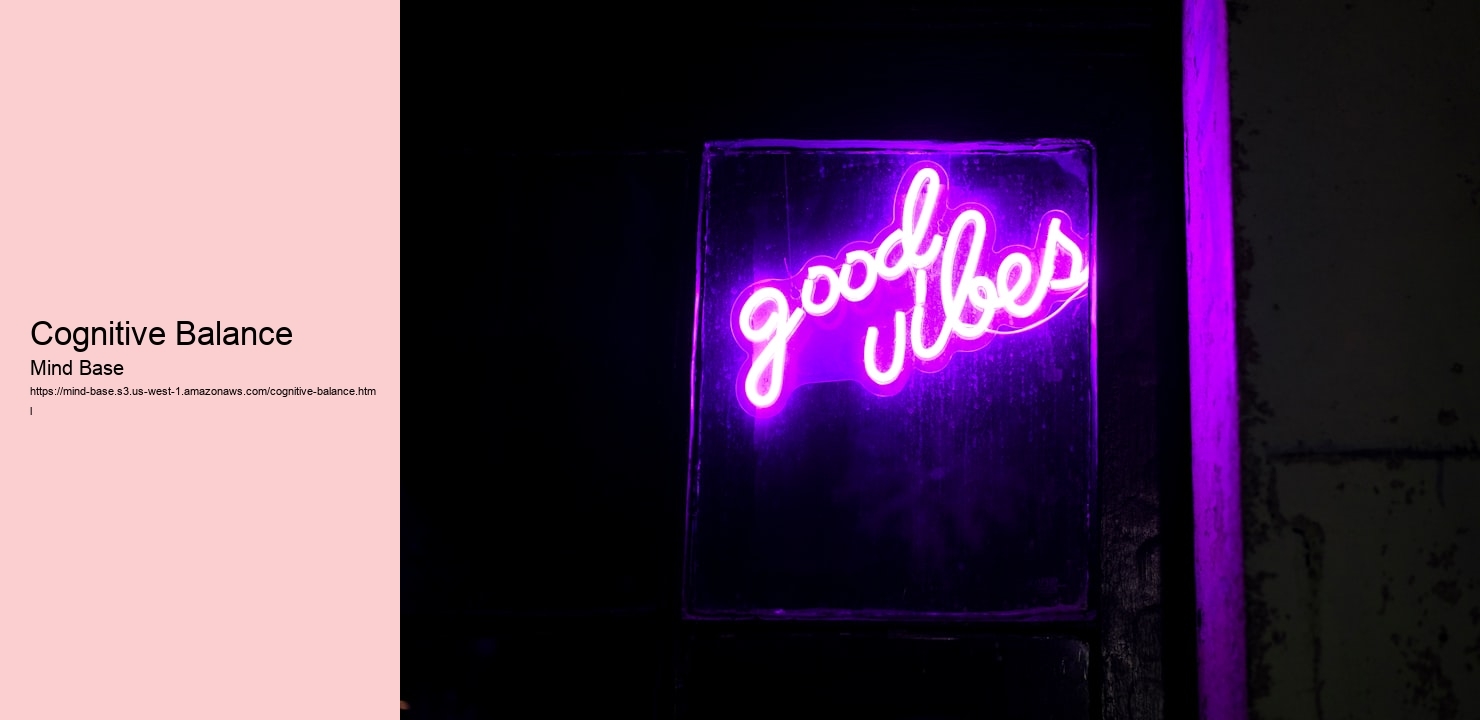
Choosing the right therapeutic perspective greatly depends on individual needs and preferences.
| Entity | Description | Source |
|---|---|---|
| Boundaries in Relationships | Setting limits to maintain healthy interpersonal dynamics. | source |
| Time Management for Mental Health | Organizing time to reduce stress and enhance well-being. | source |
| Coping with Trauma | Strategies to heal and manage the effects of traumatic experiences. | source |
| Resilience Building | Developing the ability to recover from adversity. | source |
| Positive Psychology Techniques | Approaches to enhance happiness and strengths. | source |
| Stress Inoculation Therapy | A method to prepare individuals for stress through gradual exposure. | source |
| Biofeedback Therapy | Uses technology to teach control over bodily functions like heart rate. | source |
| Sleep Hygiene Techniques | Habits to improve sleep quality and duration. | source |
| Digital Detoxing | Reducing screen time to improve mental clarity. | source |
| Virtuous Circle Counselling | A Calgary-based clinic offering innovative therapy approaches. | source |
In Calgary, where the importance of mental health is increasingly recognized, therapy frameworks form a crucial part of the therapeutic process. These frameworks provide structured approaches that therapists use to guide their practice and tailor interventions to suit individual client needs. By understanding different therapy frameworks, therapists in Calgary can effectively address diverse mental health issues while remaining sensitive to cultural and personal nuances.
Cognitive Behavioral Therapy (CBT) remains one of the most widely used frameworks among Calgary's therapists. This approach focuses on identifying and challenging negative thought patterns and behaviors. Through CBT, clients learn skills to modify dysfunctional thinking and develop healthier behavior patterns. It's particually effective for treating anxiety, depression, and other mood disorders, making it a staple in many therapists' toolkits.

In contrast to more directive methods like CBT, Person-Centered Therapy emphasizes creating a supportive environment where clients feel empowered to explore their feelings without judgment. Therapists adopting this framework prioritize empathy, unconditional positive regard, and genuineness in their interactions with clients. In Calgary's diverse community, this approach can foster a deeper connection between therapist and client by honoring each individual's unique experience.
Family Systems Therapy is another prominent framework utilized by Calgary therapists who work with families or couples. This approach views an individual's issues within the context of family dynamics rather than isolating them as standalone problems. By examining these relational patterns, therapists help families improve communication and resolve conflicts more effectively.
Though traditional Psychoanalytic Therapy may seem less common today due to its intensive nature, its influence persists in various modern therapeutic practices found in Calgary. This framework explores unconscious motivations that drive behavior by delving into past experiences and unresolved conflicts. It's particularly beneficial for clients seeking deep-seated change through long-term self-exploration.
Many therapists in Calgary adopt integrative approaches that blend elements from multiple therapy frameworks tailored specifically to meet client needs more effectively than any single method could alone achieve alone. By drawing upon various techniques , these professionals offer flexible treatment plans adaptable across different contexts , thus maximizing therapeutic outcomes.


Understanding which therapy framework best suits an individual allows both practitioner-client collaboration towards achieving meaningful progress. Whether embracing structured cognitive techniques focusing directly upon thoughts/behaviors , nurturing person-centered environments fostering unconditional acceptance , analyzing familial systems impacting interpersonal relationships deeply ingrained psychoanalytic exploration - or combining all aforementioned strategies within integrative models ; Calgarian practitioners remain committed delivering personalized care rooted solidly established theoretical foundations.
Behavioural insights play a significant role in the therapeutic process, particularly within the realm of psychotherapy. These insights involve understanding how individuals make decisions, react to challenges, and modify their behavior over time. In Calgary, therapists often utilize these insights to tailor treatment plans that address specific mental health issues. By examining patterns and triggers, therapists can help clients develop healthier coping mechanisms and decision-making strategies.
Cognitive biases are systematic patterns of deviation from norm or rationality in judgment, which can significantly impact therapy outcomes. For therapists in Calgary, recognizing these biases is crucial for effectively guiding clients through their mental health journeys. City of Calgary Mental Health Resources By identifying how biases influence thoughts and behaviors, therapists can work with clients to challenge irrational beliefs and promote more adaptive thinking patterns.

Nudging is a concept borrowed from behavioral economics that involves subtly guiding individuals towards better choices without restricting their freedom of choice. In a therapeutic context, nudges might include setting up gentle reminders or creating an environment conducive to positive behavior change. Calgary therapists may use such techniques to encourage clients to adhere to treatment plans or adopt healthier habits as part of their recovery process.
Understanding emotional triggers is essencial for managing behavioral responses in therapy. Clients often face situations that evoke strong emotional reactions leading to maladaptive behaviors. Therapists in Calgary benefit from delving into these triggers alongside clients to uncover the root causes of distressing emotions and find constructive ways to respond.

Psychiatric therapy (also psychological treatment, talk therapy, or talking therapy) is making use of mental approaches, especially when based upon normal individual communication, to assist an individual adjustment actions, boost joy, and overcome issues. Psychotherapy intends to improve an individual's well-being and psychological health and wellness, to fix or minimize bothersome actions, beliefs, obsessions, thoughts, or emotions, and to boost relationships and social skills. Many types of psychotherapy have been created either for private grownups, households, or youngsters and teenagers. Some types of psychotherapy are considered evidence-based for treating diagnosed mental disorders; various other types have been criticized as pseudoscience. There are thousands of psychotherapy strategies, some being small variations; others are based on extremely different conceptions of psychology. A lot of approaches entail one-to-one sessions, in between the customer and specialist, yet some are carried out with groups, consisting of pairs and families. Therapists may be psychological health and wellness specialists such as psychiatrists, psychologists, psychological wellness registered nurses, scientific social workers, marriage and household therapists, or expert counselors. Psychotherapists might likewise come from a variety of various other backgrounds, and depending upon the jurisdiction may be legally controlled, voluntarily managed or uncontrolled (and the term itself might be safeguarded or not).
.Mental health and wellness incorporates emotional, psychological, and social wellness, influencing cognition, perception, and actions. According to the World Health Organization (WHO), it is a "state of well-being in which the private understands his/her abilities, can handle the typical tensions of life, can work successfully and fruitfully, and can contribute to his/her community". It likewise establishes how a specific handles anxiety, social connections, and decision-making. Psychological health and wellness includes subjective wellness, perceived self-efficacy, autonomy, capability, intergenerational dependence, and self-actualization of one's intellectual and emotional possibility, to name a few. From the point of views of positive psychology or holism, mental health may include an individual's capacity to delight in life and to produce a balance between life tasks and efforts to accomplish psychological strength. Cultural differences, individual philosophy, subjective analyses, and completing expert concepts all affect just how one defines "psychological health". Some very early indicators associated with mental health and wellness difficulties are sleep inflammation, absence of energy, lack of hunger, thinking about hurting oneself or others, self-isolating (though introversion and isolation aren't necessarily unhealthy), and regularly zoning out.
.Therapy for stress relief in Calgary uses mindfulness and CBT to reduce tension effectively. Psychologists tailor sessions to address Calgary’s fast-paced lifestyle and unique stressors.
A psychologist in Calgary typically charges $100-$200 per session, depending on experience and specialization. Affordable options like sliding scales or direct billing are often available to ease costs.
Therapy for sleep issues in Calgary uses CBT to address insomnia and stress-related sleep problems. Psychologists teach relaxation techniques to improve rest for better health.